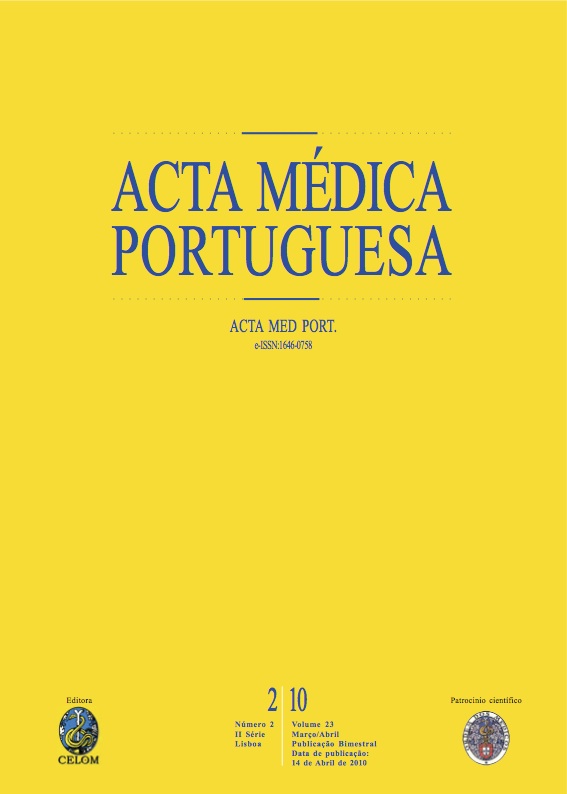Síndrome dos ovários policísticos: enfoque psicossocial.
DOI:
https://doi.org/10.20344/amp.611Resumo
The polycystic ovary syndrome (PCOS) is an endocrine-gynecologic disturbance characterized mainly by chronic anovulation and hyperandrogenism, affecting between 5 and 10% of reproductive-age women. The main manifestations of PCOS include the following symptoms: menstrual irregularity, excess body hair, infertility, acne, androgenetic alopecia, obesity and acantose nigricans. These symptoms appear quite heterogeneously, with marked differences in their prevalence and intensity among different groups of women with PCOS. Despite being a biological condition, PCOS is not only a physical problem, but also a psychosocial one, interfering and compromising the quality of life of the women affected. Based on a review of the literature, this study discusses the psychosocial aspects of women with PCOS, highlighting the impact of symptoms on health-related quality of life. Considering that every woman responds differently to the symptoms that present themselves, we emphasize the importance of integrating the individual perspective of women with PCOS to their social context. In this sense, research findings are discussed using quantitative and qualitative methodological approaches to better understand the experience of women faced with PCOS. The symptoms of PCOS may be associated with the occurrence of anxiety, sexual dysfunctions and feelings of inadequacy in the female role, and may also trigger depressive symptoms and social isolation, significantly compromising quality of life. The authors underscore the importance of multidisciplinary care for women with PCOS, considering this condition to be an important psychosocial problem. Attention to the psychosocial aspects of PCOS has increased in recent years; however, related scientific production is still scarce.Downloads
Downloads
Como Citar
Edição
Secção
Licença
Todos os artigos publicados na AMP são de acesso aberto e cumprem os requisitos das agências de financiamento ou instituições académicas. Relativamente à utilização por terceiros a AMP rege-se pelos termos da licença Creative Commons ‘Atribuição – Uso Não-Comercial – (CC-BY-NC)’.
É da responsabilidade do autor obter permissão para reproduzir figuras, tabelas, etc., de outras publicações. Após a aceitação de um artigo, os autores serão convidados a preencher uma “Declaração de Responsabilidade Autoral e Partilha de Direitos de Autor “(http://www.actamedicaportuguesa.com/info/AMP-NormasPublicacao.pdf) e a “Declaração de Potenciais Conflitos de Interesse” (http://www.icmje.org/conflicts-of-interest) do ICMJE. Será enviado um e-mail ao autor correspondente, confirmando a receção do manuscrito.
Após a publicação, os autores ficam autorizados a disponibilizar os seus artigos em repositórios das suas instituições de origem, desde que mencionem sempre onde foram publicados e de acordo com a licença Creative Commons









